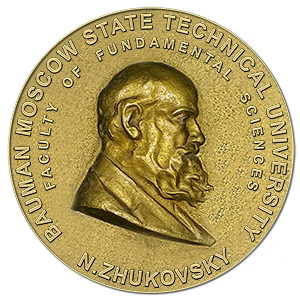


Summary of the "Space. Time. Civilization. STC-2024" International Scientific Conference,
Russia, India, Egypt, November 2nd-7th, 2024
The 2nd "Space. Time. Civilization. STC-2024" International Scientific Conference took place over the period from November 2nd to November 7th, 2024. For the first time ever the conference was simultaneously held in three countries: Russia, India and Egypt. The conference operation in Russia was organized by Bauman Moscow State Technical University. In India, the bulk of organizational activities was handled by Birla Institute of Technology and Science, Pilani (India), known as the entity that BMSTU signed a Memorandum of Cooperation with at the first STC-2023 conference, in 2023. Finally, in Egypt, it was the Egyptian Russian University that took on the organizer role.
A new website in English has been created to aid in running the conference efficiently, found at www.icstc.space. All presentations were filmed, then the video recordings were sent to the participants. The conference was attended in-person and remotely at three venues at the same time:
· Bauman Moscow State Technical University, Russia.
· Birla Institute of Technology and Science, Pilani, India;
· Egyptian Russian University, Egypt.
A representative of BMSTU, Igor Vladimirovich Fomin, Professor of the Department of Physics, had been dispatched to India in order to assist in ensuring that the conference there should proceed without any issues. In Cairo, Egypt, the person instrumental in the smooth operation of the conference was Dmitry Gennadyevich Pavlov.
The conference is dedicated to the memory of Alexei Aleksandrovich Starobinsky, Academician of the Russian Academy of Sciences, who was the Chairman of the Scientific Committee of the 2023 conference. Alexei Aleksandrovich pioneered the modern inflationary Universe theory.
The conference comprised three sections:
• Space and Time.
• Civilization Issues.
• The Origins of Civilization.
The conference was attended by over 115 people from 15 countries: Russia, Egypt, India, France, Germany, Italy, the USA, Pakistan, Iran, South Africa, the UAE, Brazil, Nigeria, Algeria, the British Indian Ocean Territory. The working language of the conference was English, all presentations being broadcast over Zoom. Over 40 people attended the conference in person. The participants could choose to take part both in person (in any of the three countries) and remotely. One of the features of the conference was that the presentations were not segregated by section but by session, so that every participant had the opportunity to listen to every presentation.
The participants of the conference highly appreciated the standards set by the conference in terms of both its scientific aspect and its day-to-day operation. A decision to hold the conference annually was reached.


















